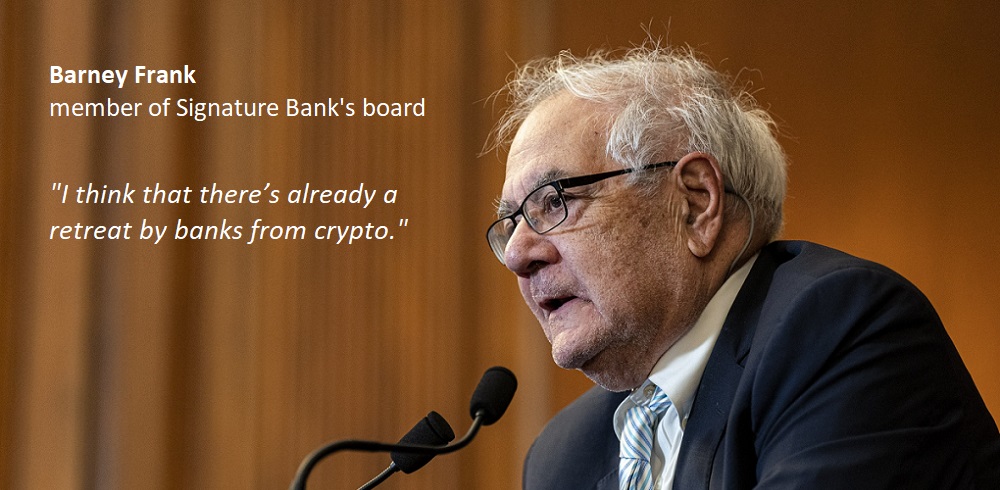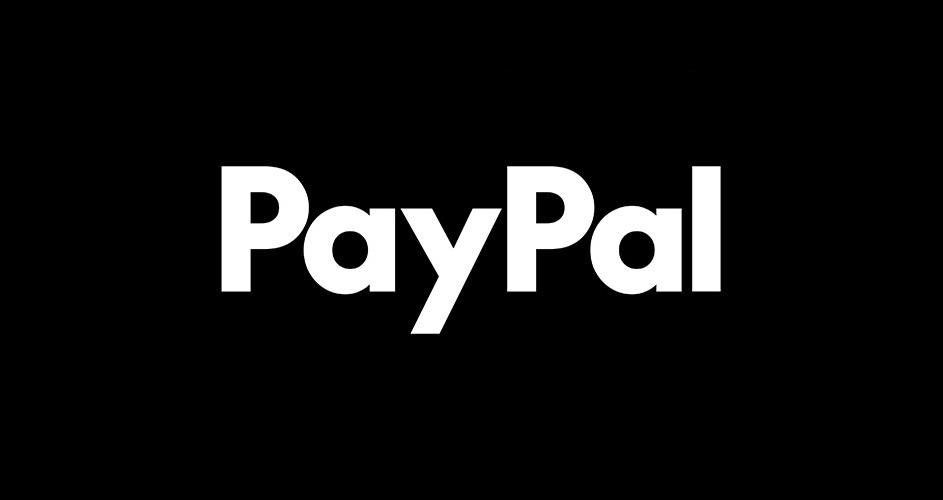Barney Frank, member of Signature Bank’s board and the author of Dodd-Frank Act: „Are we the first bank to be closed, totally, without being insolvent? And if so, why? (…) They don’t want banks doing crypto.”

Barney Frank, the former US congressman and architect of the landmark Dodd-Frank banking regulations, who also happens to sit on Signature’s board, explained in an Intelligencer interview why he blames regulators for unreasonably putting Signature Bank out of business and what he really thinks about banking crypto.
Who is to blame for Silicon Valley Bank’s collapse?
I don’t know. I’m not familiar with Silicon Valley Bank, so I can’t tell you. I can tell you from Signature’s part was that it triggered a run on deposits in our bank irrationally. Because whatever Silicon Valley had with regard to high-tech and crypto, we don’t. We’re not a big high-tech lender. We’re a big New York City housing lender more than anything else, and commercial property. We weren’t having crypto as our own asset — we were simply allowing two businesses that were customers of ours that wanted to deal with each other in crypto to do so. We were a facilitator.
But the other part we had was this: We had large depositors way beyond $250,000. That’s because our customer base is made up of major property owners. And years ago when we did the original Dodd-Frank bill, I wanted to extend the deposit guarantee to cover businesses that had to have a lot of cash on hand. I lost on that for a variety of political reasons. So what you had was, Silicon Valley is deteriorating, failing; we are seen by some people as a crypto bank; and, secondly, we have a large number of uninsured deposits. And they panicked and started withdrawing. That’s what happened Friday afternoon.
If the FDIC and the Fed had done on Friday what they did Sunday, we would not have been in any trouble. And secondly, if they’d allowed us to open on Monday, we would have been in good shape; we would have been operational.
The closure of Signature Bank surprised a lot of people, because it didn’t initially seem affected by the run earlier this year at Silvergate, the California-based bank that primarily served the crypto industry.
I’m very disappointed to learn, apparently, the Department of Financial Services in New York, which did the closing, hasn’t said we were insolvent! They said, well, they had a problem, because they couldn’t get sufficient data. I mean, I was disappointed when they closed it, and sort of vindicated — they have not argued that we were insolvent. And I think it’s very clear if we had the benefit of those two announcements, we’d still be an ongoing bank.
Now, the question is, why did they react so harshly to what they said was our inability to give them the sufficient data? I believe it was probably to send the message that even though we were doing crypto stuff responsibly, they don’t want banks doing crypto. They denied that in their statement, but I don’t fully believe that. I think that they overreacted to what they saw was our problem with data, which may well have existed, but the data was improving. I think sloppy data is not a reason to close a bank that you have not decided was insolvent, and they’ve never said we were insolvent.
I mean, is that even legal? Can the government just seize any bank, even if it’s not insolvent?
Well, that’s worrisome. Let me say this. I don’t want to comment on that personally, because as a director, I could be conceivably involved in any kind of lawsuit that anybody brought, but I think that is a very good question you raise. And particularly, somebody ought to look and see, I wonder, are we the first bank to be closed, totally, without being insolvent? And if so, why? I think the DFS, the state of New York people should have to answer that.
That’s why I speculate that using us as a poster child to say “stay away from crypto” was the reason.
Were there any warning signs that the government was planning an action against Signature Bank? Because the NY DFS was reportedly considering closing it last week, before the bank run.
No. I was at a meeting with the regulators a few weeks before, in the middle of February. There was nothing suggested that we were in danger of being closed or etc. There was no indication of that then. Hard to see what happened in a week.
Do you see this as maybe the beginning of a larger crackdown by the government?
No, I don’t think they have to. I think that there’s already a retreat by banks from crypto. There’s an old French expression — they were interested in the 18th century, how strict the discipline was in the British Navy, and in one case, the British Navy executed a guy for a relatively minor infraction because they were worried about the behavior of all the sailors. And the French said, “Oh, those peculiar English. They shoot one man to encourage the others.” And that phrase, pour encourager les autres, people understand what that means. And I think it’s probably working.
You’ve said regulators are sending a strong anti-crypto message to the banks. Do you think that that attitude is misplaced?
I think it is misplaced to say that there’s no way a bank can do crypto. We did it in a reasonable way. We weren’t counting on the value of crypto ourselves. We were facilitating other people doing it. I will say I am skeptical of crypto in general and always have been. And I think what you need is much tougher regulation of crypto, but not by the banks — by the SEC. And the Fed.
Credit photo: Al Drago/Bloomberg
Dariusz Mazurkiewicz – CEO at BLIK Polish Payment Standard
Banking 4.0 – „how was the experience for you”
„To be honest I think that Sinaia, your conference, is much better then Davos.”
Many more interesting quotes in the video below:










